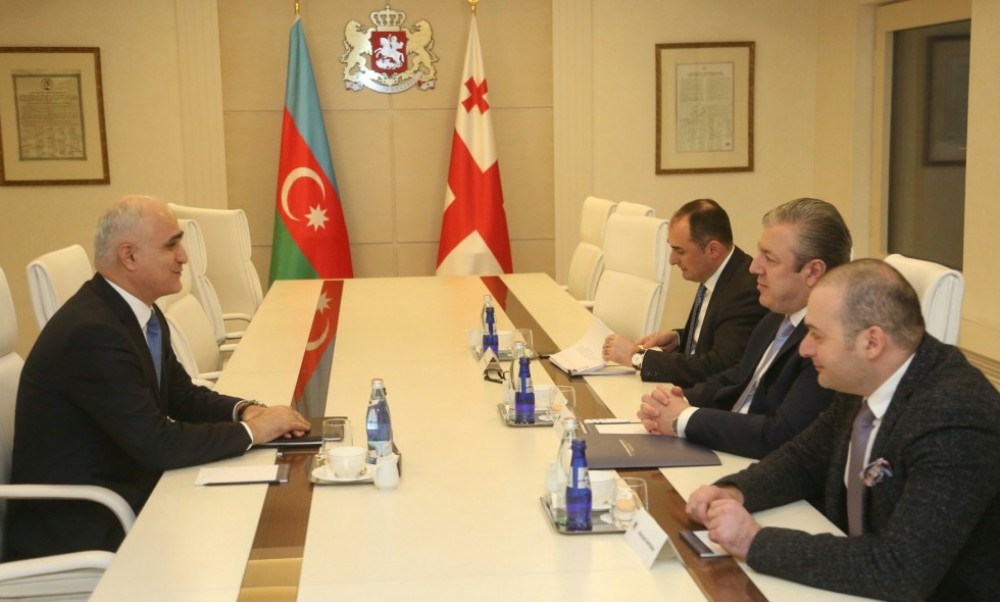EurActiv (7 March 2018)
The EU’s draft negotiating guidelines unveiled on Wednesday (7 March) set out plans for a free trade deal but stop well short of Prime Minister Theresa May’s wish list.
Here are the key points of the six page document produced by EU President Donald Tusk for approval by the 27 remaining member states:
‘Negative economic consequences’
The guidelines warn up front that while the EU wants ties to be “as close as possible”, May’s red lines for severing Britain from the world’s biggest trading block “limit the depth of the future partnership”.
Despite May’s calls for the deepest possible trade arrangement, the guidelines spell out that “being outside the Customs Union and the Single Market will inevitably lead to frictions”.
The key issue is the “divergence” between Britain and EU on key market standards and controls, the guidelines say, adding: “This unfortunately will have negative economic consequences.”
‘No cherry picking’
The EU’s favourite piece of Brexit jargon means that Britain cannot pick the bits of the union it likes – access to Europe for its financial services industry for example – and drop the bits it doesn’t – such as free immigration for EU nationals.
“There can be no ‘cherry picking’ through participation based on a sector-by-sector approach that would undermine the integrity and proper functioning of the Single Market,” they say.
The fear is that special carve outs for Britain may encourage other EU countries to try their luck on the outside.
‘Ambitious’ FTA
The guidelines say the EU is ready to “initiate work towards a free trade agreement” involving zero tariffs on goods that would be concluded after Britain leaves.
Tusk said this was the only kind of arrangement possible given Britain’s demands, citing the EU’s deal with Canada – which excludes financial services – as a model.
But the EU still wants an “ambitious” deal, a senior EU official said, adding that it would cover goods and services “in all sectors.”
One key issue is ensuring a “level playing field” – finding a mechanism to prevent either side under-cutting the other economically by slashing regulation or giving state subsidies to businesses.
No mention of financial services
The EU guidelines make no overt mention of Britain’s call for a special deal for financial services, a demand repeated by Finance Minister Philip Hammond on Wednesday.
Instead they say the EU wanted to allow “market access to provide services under host state rules” – basically insisting that Britain has to play by the union’s rules if it wants access.
The lack of a specific reference was deliberate to avoid going into the details of a thorny issue and to avoid mentioning particular sectors – which could itself encourage cherry picking, the senior EU official said.
EU moves to extend grip on financial sector after Brexit
The European Commission proposed on Wednesday (20 September) transferring some powers to oversee the financial sector from national capitals in a move to extend the EU’s grip on the industry as the bloc prepares for the departure of London, its main financial hub.
‘Evolve’ and ‘reconsider’
The EU keeps its options open in case May’s position changes – notably on the customs union, which she is under pressure to join from some in her own Conservative party and also from the opposition Labour party.
On the British stance, the guidelines say: “If these positions were to evolve, the Union will be prepared to reconsider its offer”.
UK backtracks over Brexit transition period
The Prime Minister’s office has sought to play down suggestions that Theresa May’s government is preparing to re-open talks about the length of the transition period after the UK formally leaves the EU.
Beyond trade
The guidelines call for close ties on defence, security and counter-terrorism in particular between the EU and Britain, one of Europe’s biggest military powers and an influential member of NATO and the UN Security Council.
Tusk called for the early signing of an air transport agreement to ensure that air links between Britain and the continent are not threatened.
Britain would have to leave the EU’s various regulatory agencies but the guidelines do not rule out an “associate” role.
No comments yet.
-
 IRAQ, IRAN AGREE TO EXTEND ELECTRICITY SUPPLY FOR ONE YEAR
Iraq
08.03.2018
IRAQ, IRAN AGREE TO EXTEND ELECTRICITY SUPPLY FOR ONE YEAR
Iraq
08.03.2018
- IS IT THE END OF INDIA’S SPECIAL RELATIONSHIP WITH NEPAL? Asia - Pacific 08.03.2018
-
 PRIME MINISTER GIORGI KVIRIKASHVILI: GEORGIA IS INTERESTED IN BOOSTING COOPERATION WITH AZERBAIJAN
The Caucasus and Turkish-Armenian Relations
08.03.2018
PRIME MINISTER GIORGI KVIRIKASHVILI: GEORGIA IS INTERESTED IN BOOSTING COOPERATION WITH AZERBAIJAN
The Caucasus and Turkish-Armenian Relations
08.03.2018
- AZERBAIJANI, IRANIAN, TURKISH AND GEORGIAN FMS TO MEET IN BAKU The Caucasus and Turkish-Armenian Relations 08.03.2018
- U.S., IRAQ’S S-400 DEAL DISPUTE TO BE RESOLVED WITH DIPLOMACY: AMBASSADOR Iraq 08.03.2018
-
25.01.2016
THE ARMENIAN QUESTION - BASIC KNOWLEDGE AND DOCUMENTATION -
12.06.2024
THE TRUTH WILL OUT -
27.03.2023
RADİKAL ERMENİ UNSURLARCA GERÇEKLEŞTİRİLEN MEZALİMLER VE VANDALİZM -
17.03.2023
PATRIOTISM PERVERTED -
23.02.2023
MEN ARE LIKE THAT -
03.02.2023
BAKÜ-TİFLİS-CEYHAN BORU HATTININ YAŞANAN TARİHİ -
16.12.2022
INTERNATIONAL SCHOLARS ON THE EVENTS OF 1915 -
07.12.2022
FAKE PHOTOS AND THE ARMENIAN PROPAGANDA -
07.12.2022
ERMENİ PROPAGANDASI VE SAHTE RESİMLER -
01.01.2022
A Letter From Japan - Strategically Mum: The Silence of the Armenians -
01.01.2022
Japonya'dan Bir Mektup - Stratejik Suskunluk: Ermenilerin Sessizliği -
03.06.2020
Anastas Mikoyan: Confessions of an Armenian Bolshevik -
08.04.2020
Sovyet Sonrası Ukrayna’da Devlet, Toplum ve Siyaset - Değişen Dinamikler, Dönüşen Kimlikler -
12.06.2018
Ermeni Sorunuyla İlgili İngiliz Belgeleri (1912-1923) - British Documents on Armenian Question (1912-1923) -
02.12.2016
Turkish-Russian Academics: A Historical Study on the Caucasus -
01.07.2016
Gürcistan'daki Müslüman Topluluklar: Azınlık Hakları, Kimlik, Siyaset -
10.03.2016
Armenian Diaspora: Diaspora, State and the Imagination of the Republic of Armenia -
24.01.2016
ERMENİ SORUNU - TEMEL BİLGİ VE BELGELER (2. BASKI)
-
AVİM Conference Hall 24.01.2023
CONFERENCE TITLED “HUNGARY’S PERSPECTIVES ON THE TURKIC WORLD"









